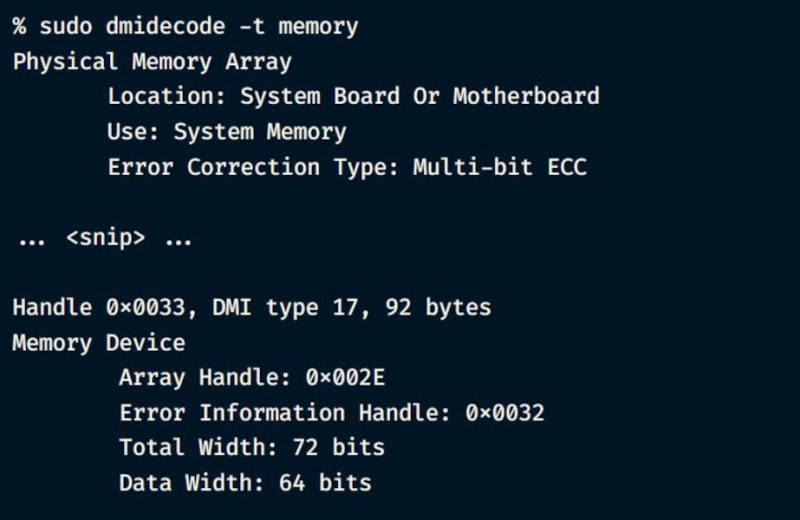
When running a server, especially one with mission-critical applications, it’s common practice to use error-correcting code (ECC) memory. As the name suggests, it uses an error-correcting algorithm to continually check for and fix certain errors in memory. We don’t often see these memory modules on the desktop for plenty of reasons, among which are increased cost and overhead and decreased performance for only marginal gains, but if your data is of upmost importance even when working on a desktop machine, it is possible to get these modules up and running in certain modern AMD computers.
Specifically, this feature was available on AMD Ryzen CPUs, but since the 7000 series with the AM5 socket launched, the feature wasn’t officially supported anymore. [Rain] decided to upgrade their computer anyway, but there were some rumors floating around the Internet that this feature might still be functional. An upgrade to the new motherboard’s UEFI was required, as well as some tweaks to the Linux kernel to make sure there was support for these memory modules. After probing the system’s behavior, it is verified that the ECC RAM is working and properly reporting errors to the operating system.
Reporting to the OS and enabling the correct modules is one thing, actually correcting an error was another. It turns out that introducing errors manually and letting the memory correct them is possible as well, and [Rain] was able to perform this check during this process as well. While ECC RAM may be considered overkill for most desktop users, it offers valuable data integrity for professional or work-related tasks. Just don’t use it for your Super Mario 64 speedruns.
0 Commentaires